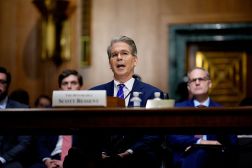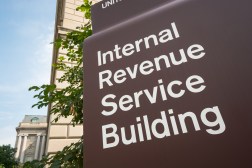Congress wants OMB, Treasury to sharpen DATA Act statutes
Members of the House Oversight and Government Reform Committee’s IT and Governmental Operations subcommittees told several government officials Wednesday they need to tighten regulations and requirements related to the Digital Accountability and Transparency Act.
During a hearing Wednesday, members applauded early efforts of the White House’s Office of Management and Budget and the Treasury Department in laying the groundwork for the law. Yet they also questioned the amount of money being spent and time needed to make sure the law is correctly in place.
The DATA Act requires federal agencies to make their financial, budget, payment, grant and contract data available on USASpending.gov, the federal government’s financial data hub, by May 9, 2017.
“The law, which has been in effect for a year now, has not really given us the tools to make informed decisions,” said Government Operations Subcommittee Chairman Mark Meadows, R-N.C., in his opening remarks.
During the hearing, Gene Dodaro, the U.S. comptroller general and head of the Government Accountability Office, praised OMB and Treasury for their early work, including the designation of 57 data elements that will be listed by agencies on USASpending.gov.

A list of the 57 data elements to be included on USASpending.gov as part of the DATA Act. (GAO)
However, he highlighted a number of areas in which efforts could improve. He called on agencies to merge DATA Act standards with those established by the Government Performance and Results Act, creating a full catalog of government programs and activities for Congress and the public to examine.
“We need a inventory of federal programs so that Congress can collectively look at the aggregate investment the federal government is making in various programs and activities,” Dodaro said.
He called for a uniform group of people to set up the rules, regulations and operations of the project — particularly since the DATA won’t be in full effect until the next presidential administration is in office. Part of that structure calls for OMB and Treasury to engage with state and local governments, nonprofits, and defense contractors to figure out what they need before anything tied to the act becomes permanent.
“We can come up with the best standards in the world but unless they are implemented effectively, you are not going to have accurate data,” Dodaro said.
OMB Controller David Mader and Commissioner of the Treasury Department’s Financial Management Service David Lebryk told lawmakers they are launching pilot programs, opening up feedback via GitHub and simplifying federal award reporting. However, Mader said that the money reserved for the act ($84 million in fiscal year 2016, $300 million between 2014 and 2018) needs to stay at current levels to keep the law on track.
“Without dedicated resources, agencies will have a substantial difficulty in reaching statutory requirements and overall intent of the DATA Act,” Mader said.
IT Subcommittee Chairman Will Hurd, R-Texas, chafed at that price tag.
“To get 24 agencies to map 56 pieces of information to a single database does not require two years and $300 million,” Hurd said.
Hurd said the real pain point that’s going to eat up a lot of resources is cleaning up data that’s already been in federal systems but doesn’t currently meet DATA Act requirements.
“We are going to have to go back through in 24 agencies and 56 pieces of information, where folks have put in a lot of data and have probably done it the wrong way,” he said. “Going back to clean up the data is going to be a challenge.”
Amid these challenges, committee members seemed eager to make sure OMB and Treasury are on the right path for the sake of what the law could uncover when it comes to federal spending. Meadows highlighted one such instance in which he feels the DATA Act could provide some greater clarity.
“The EPA has 37 different laboratories managed by 15 different EPA officials spread across 30 cities and 170 buildings without any coordination,” Meadows said. “Now if that is not a recipe for disaster, I can’t imagine what would be.”
“This lack of accurate, reliable and consistent data makes it difficult, if not impossible, to properly evaluate whether taxpayer dollars are being wasted or wisely spent,” he said.






